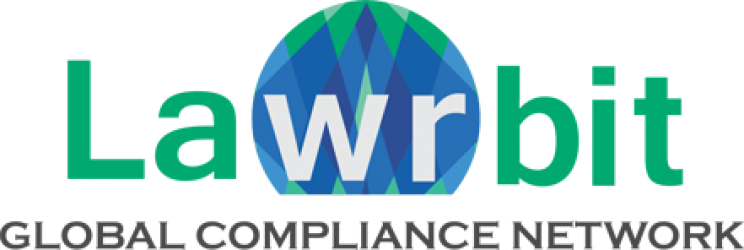In today’s contemporary world, most organization are driven by conflicting interests which to an extent use all methods possible, whether fair or unfair, to secure the interest of the organization in order to grow and bring business to the organization. Thus, the administration of the organization needs a force as the instrument for resolution of disputes and this is where counsels, lawyers and legal professionals come into play. The ultimate object for all counsels in an organization is to secure resolution of disputes.
The difficulty, however, lays in devolving and devising mechanisms to achieve effective resolution of disputes by reducing risk & protecting your organization against repercussions of litigations by use of technology in form of Litigation Management Solution (LMS). Although tech is most commonly used for mundane tasks, such as scanning documents and checking records, it is starting to tackle more complex work in business, law and beyond.
SUPER COMPLEX WORLD OF LITIGATIONS
On one side, the conflict takes years and generations to settle, remembering every minute detail during the progress of issue from Notice to Litigation, Counter claims, counter notice, summons, orders, proofs, changing lawyers, fines, payments is utmost important.
Lawyers need a lot of information at hand as they deal with multiple notices, litigation & arbitrations on daily basis. They need their dates, deadlines, case brief, previous hearing details and other notes on the go; all the time. They obviously have all of this with them but certainly not in one place.
What is Litigation Management Solution?
LMS have crept out of the research lab and into the office and has now entered the realm of legal services. LMSs have been created as a way to help assemble and automate all the work related to different cases going on in the legal department of an organization.
The legal field has widespread areas of application for LMS including but not limited to legal research, contract analytics, predictive analytics, computer generation of documents, work automation and process improvement.
Every legal professional knows how important deadlines are in their line of work. With multiple lawsuits to handle, no counsel can try and remember each and every important date and the task to perform pertaining to their case(s). LMS can help in managing these important court dates and to-do and to-file tasks and sets automated reminders in advance. Not only do you receive reminders in emails, but you can also sync your mail systems and other calendars with the same.
KEY FUNCTIONS OF LMS
- Managing Notices / Litigations
- Court dates, Calendaring
- Documents Management, Docketing, Case database
- Managing & validating legal budget, Expenses & lawyer fees
- Contact management
- Generating on-demand reports
LMS is a powerful too and allows users to keep all of this important information in one centralized place, which can be accessed instantly and that to on the go.
- Manage litigation cases for different jurisdictions, branches, functions efficiently.
- Management of due dates can be met accurately & a centralised case repository can be created.
- Store and manage the complete case details i.e. Case Description, Court, Title, Bench, Opposite Party & Counsel, Stage of Proceedings etc.
- All information from case details of each previous court date, case synopsis, prayers, responses, research work, etc. is readily available with a click of a button.
Budget and Expense Management
Lawyers are the post proficient accounts who play with numbers all the time; decides action, resource allocation and seriousness basis ROI. Thus, he needs to track every penny budgeted & spent.
Manually, it becomes difficult to validate information related to previous payments, arrangement with external lawyers and correlation between invoiced dates and actual dates of hearing, internal expenses including court fees, clerkage, stamp papers, commutation, etc. This leads to allocation of incorrect budget, hours of manual labour to quantify budget vis-a-vis actual spends or to provision for new budget or to choose the right course of action for each matter.
With LMS in place, recording and validating all expenses becomes very easy. One can get ready reports for budgets, spends, contingent liability schedule, ageing, etc. and take the correct next step for each matter. This will not only help in saving hours and hours in audit of expenses and clearing invoices, but also reduce any errors and would rather aid in guiding with ready reports and in-depth analytics.
Document Management
The major challenge for each litigation dispute is organizing documents and other allied reference material. When it comes to organizing a case, instead of waiting for your lawyers to ask all information and start collecting all the information from various sources ranging from notes and contracts, pleadings and briefs in a file on your desk, and all emails on your email system.
LMS allows users to keep all documents in one centralized place. From notices to replies, appeals, pleadings, orders, related judgments, other research material, important emails, etc. All these files and documents can be neatly stored within the matter and can be accessed instantly on the go.
Collaboration and Co-ordination
Key to all tasks and assignments is effective communication. No one ever wants to miss out notices or depend on its lawyers or counsels to communicate with others to get you the information you need.
LMS can help you bridge the gap between legal and other departments. In-house legal teams can instantly send share the new notices received from anywhere across the globe or contact their professionals for any request. Moreover, it also allows one to share important information, documents, notes, reports, etc. with other legal users to ensure minimum dependency and maximum time utilization and thereby ensure effective communication.
Reliability and Performance of LMS
LMS has entered in the realm of legal services across all major jurisdictions. It’s being used at advanced level from solving petty parking ticket dispute in New York to resolution of disputes through Online Dispute Resolution (ODR) in Australia.
While interest in technology and increasing spend on legal technology is well-documented, there is limited information available on how technology is used on a day-to-day basis by industry practitioners. As the litigation industry grows and evolves in the wake of COVID-19, our nation has finally adopted the practice of virtual court with the help available tools and technology.
Disclaimer
The information provided in this article is intended for general informational purposes only and should not be construed as legal advice. The content of this article is not intended to create and receipt of it does not constitute any relationship. Readers should not act upon this information without seeking professional legal counsel.


